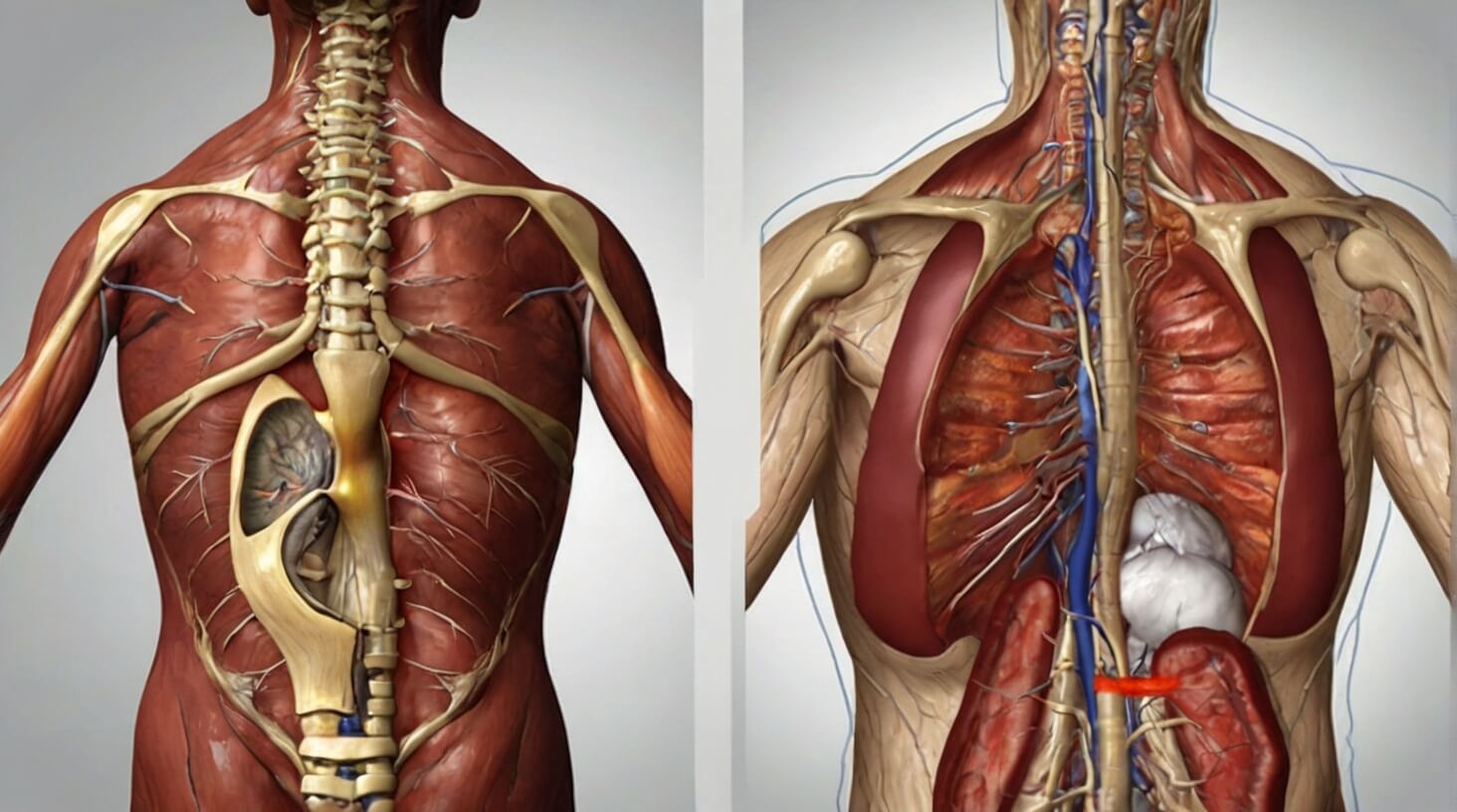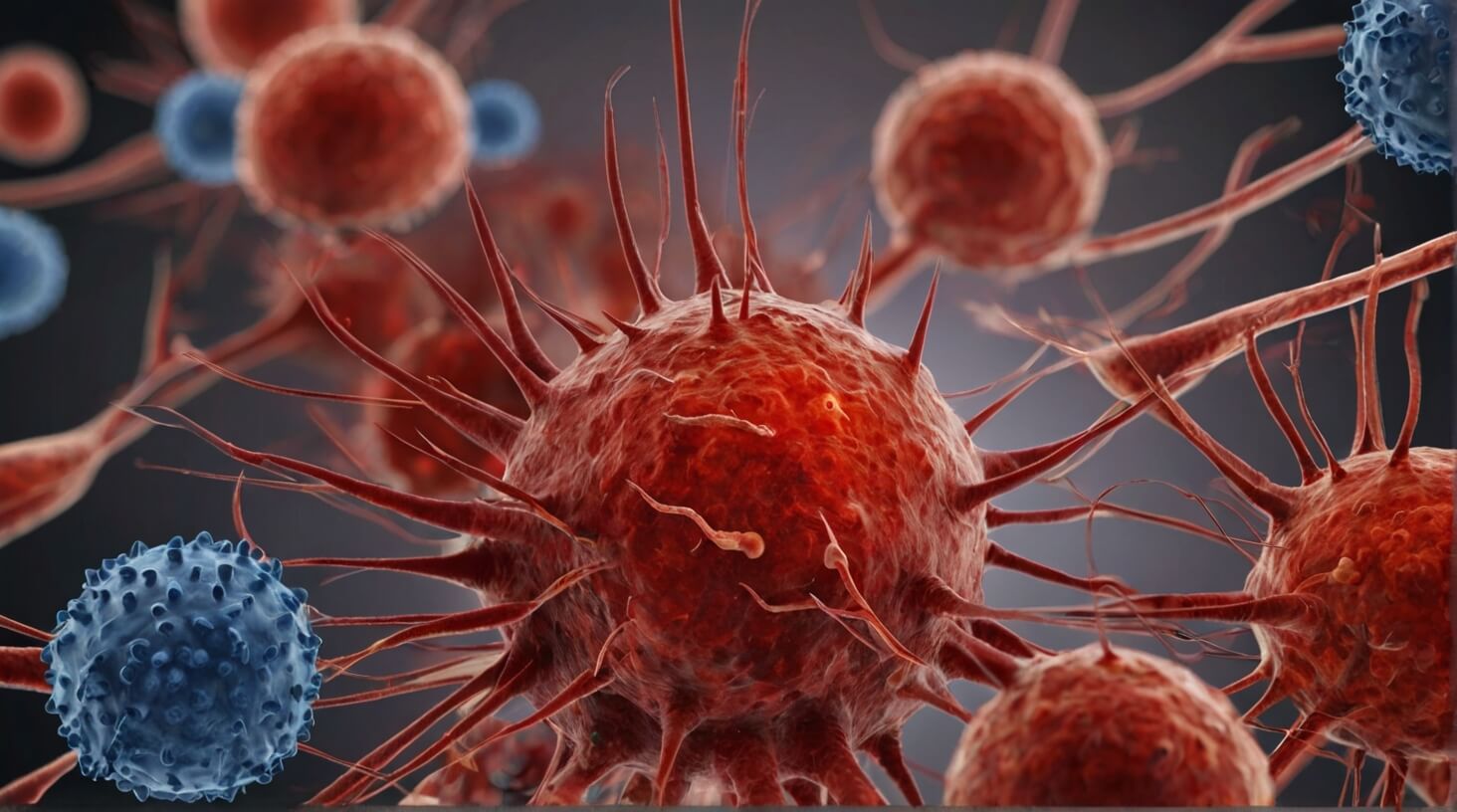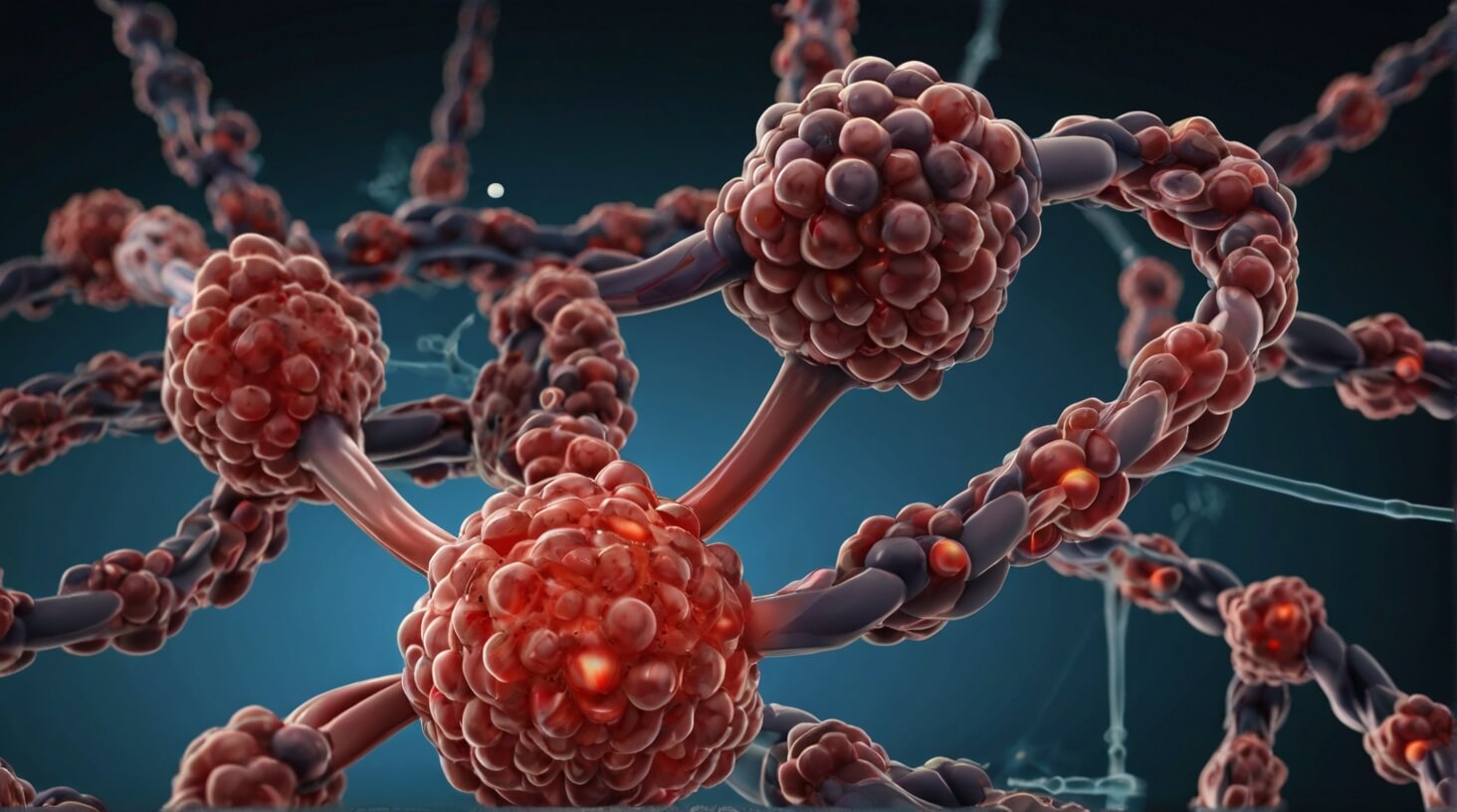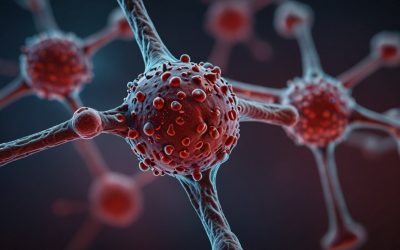Well, you could think of inflammation as your body’s overzealous security guard, sometimes so eager to fend off intruders that it mistakenly starts a fight with its own cells, creating the kind of workplace drama that can lead to cancer. As you navigate the complex relationship between inflammation and cancer, you’ll find that it’s not just about swollen ankles or a sore throat; it’s about a persistent inflammatory response that, over time, can set the stage for a mutinous takeover by rogue cells. Chronic inflammation acts as a catalyst in the transformation of normal cells into cancerous ones, and while you’re aware that not every inflammatory response is a ticket to oncology, you can’t help but wonder about the subtler nuances of this connection. What are the molecular whispers that turn a healing process into a harmful one, and how might this insight shape the future of cancer prevention and therapy? Stay tuned, as we explore how a process as basic as inflammation can tip the scales toward malignancy, and consider what advances in understanding might mean for your health and well-being.
Key Takeaways
- Chronic inflammation can contribute to the development of cancer by fostering a microenvironment that nurtures tumor growth.
- Inflammatory cells disrupt normal tissue repair mechanisms and alter the extracellular matrix, increasing the risk of malignancies.
- Pro-inflammatory cytokines and chemokines play pivotal roles in the tumor microenvironment, contributing to the growth and spread of cancer cells.
- Lifestyle choices such as adopting a healthy diet, regular exercise, effective stress management, and prioritizing sleep can lower inflammation levels and minimize the risk of inflammation-related cancer.
Understanding Inflammation
To grasp the link between inflammation and cancer, it’s essential to understand that inflammation is your body’s natural defense mechanism, designed to promote healing when you’ve sustained tissue damage or injury. The inflammatory process is a complex biological response involving your immune system. It dispatches an army of white blood cells and substances, including inflammatory cytokines, to the affected site. These cytokines mediate the immune response, orchestrating the repair and regeneration of tissues.
In the case of acute inflammation, this is a short-term response characterized by redness, heat, swelling, and pain, typically resolving once the underlying cause is eliminated. However, when inflammation persists, it becomes chronic. This prolonged inflammatory response can be detrimental to your health. Chronic inflammation, sustained by continuous production of inflammatory cytokines, may contribute to the development of new disease states.
Specifically, chronic inflammation can create an environment that favors the initiation and progression of cancer. Cells within a chronically inflamed region are subjected to an onslaught of signaling molecules that can lead to DNA damage and subsequent mutations. Furthermore, the inflamed environment can facilitate the metastasis of cancer cells, influencing their ability to spread to other organs.
Lifestyle choices play a pivotal role in modulating your immune system and the extent of chronic inflammation. By adopting a healthy diet, engaging in regular exercise, managing stress effectively, and prioritizing sleep, you can significantly reduce the risk of chronic inflammation and, by extension, cancer. It’s a powerful reminder that your everyday actions can have a profound impact on the inflammatory response and your overall health.
Chronic Inflammation’s Mechanisms

Understanding how chronic inflammation promotes cancer requires examining the mechanisms that sustain such a prolonged immune response. Chronic inflammation arises when the body’s immune responses, tailored to fight off infections and heal injuries, become persistent due to continuous provocations or the failure of control mechanisms. This persistence creates a fertile ground for cancer development.
At the cellular level, inflammatory mediators, including cytokines and chemokines, are pivotal in the recruitment of inflammatory cells to affected tissues. These cells, primarily macrophages and T-lymphocytes, are designed to eradicate pathogens and facilitate tissue repair. However, in the context of chronic inflammation, they can have deleterious effects. These cells release high levels of reactive oxygen species (ROS) and nitrogen species as part of their defensive arsenal. While these molecules are vital for pathogen destruction, they can also induce DNA damage, leading to mutations that push cells towards dysplasia—a precursor to carcinoma.
Moreover, signaling pathways, such as those involving tumor necrosis factor (TNF), play a critical role in maintaining the inflammatory response. TNF, among other cytokines, not only perpetuates inflammation but also influences cell survival and proliferation, inadvertently aiding tumor growth and progression. The continuous recruitment of inflammatory cells, accompanied by the release of ROS and other mutagenic agents, results in ongoing tissue damage and cellular proliferation.
Conditions like inflammatory bowel diseases exemplify the link between chronic inflammation and cancer risk. For instance, H. pylori infection, a known cause of chronic gastric inflammation, significantly increases the risk for gastric cancer development. It is thus crucial to understand and mitigate the underlying mechanisms of chronic inflammation to effectively prevent and treat cancer.
Inflammation’s Role in Cancer

Chronic inflammation acts as a catalyst for cancer, fostering a microenvironment that nurtures tumor growth and spread. This environment is characterized by the persistent presence of infiltrating inflammatory cells, which contribute to the development of cancer by disrupting normal tissue repair mechanisms. As you delve into the complexities of chronic inflammation and cancer, it’s crucial to understand that the inflammatory response is a double-edged sword. While it is essential for immune defense and tissue repair, dysregulated inflammation, particularly in chronic inflammatory conditions, can lead to an increased risk of malignancies.
Cytokines produced during chronic inflammation have a pivotal role in this process. They can alter the extracellular matrix (ECM), thus facilitating tumor growth and spread. The ECM remodeling is an intricate process that not only supports the structural integrity of tissues but also regulates cell behavior. When inflammatory cells infiltrate the ECM, they release cytokines and other enzymes that can degrade the ECM, allowing cancer cells to invade adjacent tissues.
Moreover, inflammatory signaling pathways are intimately involved in promoting tumor progression. These pathways can be inadvertently activated by anti-cancer therapies, thus inducing an inflammatory response that may, paradoxically, support the survival and proliferation of cancer cells. It’s a delicate balance that you, as a healthcare provider, must navigate when considering treatment options for patients.
Molecular Links to Malignancy

As you consider the role of chronic inflammation in cancer, it’s imperative to examine how specific molecular interactions contribute to malignancy. Pro-inflammatory cytokines and chemokines, such as tumor necrosis factor (TNF) and macrophage migration inhibitory factor (MIF), play pivotal roles in the tumor microenvironment. These molecules can alter the cytokine profile within this niche, fostering conditions that support the development of cancer.
Chronic inflammation sets the stage for cellular transformation, which is a critical step toward malignancy. Inflammatory responses can induce cell proliferation, enhance survival signals, and inhibit apoptosis, thereby granting cancer cells a distinct survival advantage. Furthermore, the presence of chronic inflammation can stimulate angiogenesis, the process of new blood vessel formation, which is essential for tumor growth and is mediated in part by vascular endothelial growth factor (VEGF).
Tumor-associated macrophages (TAMs), influenced by the inflammatory milieu, can promote tumor progression. They release a plethora of factors that support cancer cells in their invasive and metastatic endeavors. For instance, TAMs can enhance the invasive potential of cancer cells, enabling them to breach the surrounding tissue and enter the bloodstream, setting the stage for metastasis.
Understanding the molecular links between chronic inflammation and cancer underscores the complexity of malignant progression. It’s clear that inflammatory cytokines and chemokines contribute directly to the transformation of normal cells into cancerous ones. By dissecting these molecular pathways, you’re better equipped to develop interventions that can disrupt the insidious relationship between chronic inflammation and cancer, ultimately serving those afflicted by this disease.
Strategies for Prevention
To effectively reduce the risk of inflammation-related cancer, it’s essential to adopt a multifaceted prevention strategy that includes lifestyle modifications and proactive health measures. Regular exercise and a balanced diet are cornerstone habits that not only minimize chronic inflammatory processes but also reinforce the body’s protective response against malignancies, including breast cancer, a leading cause of cancer-related deaths.
Avoiding harmful substances is critical in the strategies for prevention. Tobacco, known for its carcinogenic properties, and excessive alcohol consumption must be eliminated from your daily habits to lower your chances of chronic inflammation and subsequent cancer development.
Stress management and adequate sleep play a vital role in maintaining a healthy immune system. They help mitigate the inflammatory response, thereby reducing the risk of cancer. Approaches to cancer prevention also include diet adjustments. An anti-inflammatory diet, rich in fruits, vegetables, and omega-3 fatty acids, can be beneficial, while reducing the intake of inflammation-promoting foods like saturated fats and processed snacks is equally important.
For those with autoimmune diseases, seeking medical advice is imperative in managing chronic inflammation, which might contribute to cancer. Here’s a table summarizing key prevention strategies:
| Lifestyle Factor | Strategy | Impact on Inflammation |
|---|---|---|
| Diet | Anti-inflammatory foods; limit processed items | Reduces chronic inflammation |
| Substance Exposure | Avoid tobacco, manage alcohol intake | Lowers inflammation-related cancer risk |
| Stress and Sleep | Effective management, sufficient rest | Diminishes inflammatory response |
Therapeutic Interventions and Outcomes
Therapeutic interventions in cancer treatment strategically target pro-inflammatory mediators within the tumor microenvironment to impede cancer progression. These interventions are critical, as chronic inflammation can promote cancer cell survival, proliferation, and metastasis. By understanding and manipulating the complex interplay between inflammation and cancer, you can significantly enhance the efficacy of anti-cancer therapies.
Consider these four pivotal therapeutic approaches:
- Use of Anti-Inflammatory Drugs: These drugs are deployed to reduce chronic inflammation, potentially lowering the risk of cancer initiation and progression. For instance, nonsteroidal anti-inflammatory drugs (NSAIDs) have been shown to induce cancer cell death and may complement other anti-cancer therapies.
- Application of Targeted Inhibitors: Neutralizing antibodies and small-molecule inhibitors are designed to specifically block inflammatory pathways implicated in cancer development. Chemokine inhibitors, for example, can disrupt the signals that attract immune cells to the tumor, reducing inflammation-driven tumor growth.
- Employment of Recombinant Cytokines and Mediators: By using these substances, you can alter the inflammatory environment of a tumor. This can recalibrate the immune response to support the eradication of cancer cells rather than their growth.
- Local Irradiation Techniques: These methods aim to modulate the inflammatory tumor microenvironment. Properly administered, local irradiation not only damages cancer cells directly but can also have systemic anti-inflammatory effects.
As someone committed to serving others, your role in administering or supporting these therapeutic interventions is vital. By carefully selecting and monitoring these treatments, you can help reduce the inflammation that fuels cancer and improve patient outcomes. Remember, the goal is to tailor anti-cancer therapy that mitigates inflammation while maximizing the potential for recovery and quality of life.











